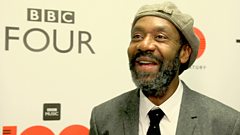
John Cage: 4'33
The famous musical thought experiment that questions what music is - and who gets to decide.
Woodstock. Summer of 1952. 8.15pm. David Tudor is giving a piano recital at the open-air Maverick Concert Hall, whose broad double doors open onto benches in the forest. The audience is a mix of locals, avant-gardists and holidaying musicians from the New York Philharmonic orchestra. All of the "proper" recital etiquette is observed – which is probably the first sign that something radically subversive is about to happen. After pieces by Christian Wolff, Morton Feldman and Pierre Boulez, David Tudor walks back onto the small wooden stage for a new work by John Cage. He sits down at the piano – then he closes the lid and looks at a stopwatch. His gravitas is flawless. He does not play a single note, instead delivering impeccable silence for exactly four minutes and 33 seconds.
But this is no stunt. John Cage’s latest work, 4'33, is a thought experiment that avant-garde music has been moving towards for centuries – from the medieval mystics right through the French proto-minimalist Erik Satie. Artists had long been exploring the possibility of everyday sounds infiltrating the concert hall: Edgard Varèse with his sirens, George Antheil with his airplane propellors. The point is, 4’33 isn’t about silence at all: it proves that quiet atmospheric sounds can be extremely rich, if only we bother to listen.
Cage would later describe exactly what he heard during that first Woodstock performance: wind rustling in the trees during the first movement; rain starting to patter on the roof during the second movement; people walking out during the third movement. Because not everyone was amused. After the concert there was a question-and-answer session, which culminated with someone shouting: “Good people of Woodstock, let’s run these people out of town!” Cage lost friends because of that premiere. They thought he was playing a trick on his audience. His own mother asked: ”Don’t you think that John has gone too far this time?”
But really, all Cage had done was to follow an argument to its logical conclusion. He had considered calling the piece “silent prayer”. After all, it’s a meditation; it’s an act of framing; it’s a mindfulness exercise performed 60 years before mindfulness became trendy. Cage wanted to honour the sounds of the everyday and to question what counts as music and who decides. As soon as David Tudor walked off stage that August night, the musical world would have to begin answering those questions from scratch.
This is one of 100 significant musical moments explored by �鶹�� Radio 3’s Essential Classics as part of Our Classical Century, a �鶹�� season celebrating a momentous 100 years in music from 1918 to 2018. Visit bbc.co.uk/ourclassicalcentury to watch and listen to all programmes in the season.
This is an excerpt from a recording by Amadinda Percussion Group.
Duration:
This clip is from
Featured in...
![]()
The music of Our Classical Century—Our Classical Century
100 recordings to celebrate 100 years of exciting, inspirational, rule-busting music.
More clips from Our Classical Century
-
![]()
Step outside your musical tribe
Duration: 02:49



